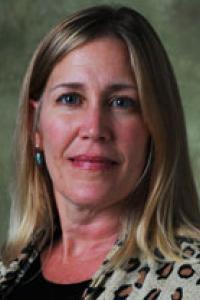The Institute for Global Engagement invites applications annually for six to ten awards of $250-$1,000 each for the purpose of internationalizing the curriculum at SUNY Oswego. All faculty from all departments can apply. This new award replaces Global Engagement Guest Speaker Grants, Internationalization Course Redesign Awards, and COIL (Collaborative International Online Learning) grants.
Funds can be used, among other things, to bring guest speakers to campus, acquire materials that will facilitate the internationalization of a course, organize events and symposia, provide a stipend for designing or redesigning a course (including COIL courses), or attending national conferences and events with an international focus (international travel is covered by a separate OIEP grant).
A call for proposals is sent out via email to all faculty in the second half of the Spring semester, but there is rolling deadline for special projects
Award notification: Approximately 4 weeks after deadline for submission
Selection process: Review by IGE committee
For any questions, contact the IGE Director.
Previous Award Winners
 Although as an anthropologist most of my content is international, the IGE internationalization redesign award was an incredible opportunity to refine my course objectives. Heather Ward and Susan Carvalho from American Council on Education pushed us to think through the “why” of learner outcomes. This invited us to be clear on what we wanted students to gain from international content and put the focus on skills-based teaching and assessment. The award helped me bring my course, Introduction to Cultural Anthropology, in line with the strengths of my department (hands-on research and problem solving), while at the same time staying focused on the goals outlined in SUNY Oswego’s Tomorrow Plan. I took particular interest in the plan’s emphasis on engaging grand challenges of our time and world awareness.
Although as an anthropologist most of my content is international, the IGE internationalization redesign award was an incredible opportunity to refine my course objectives. Heather Ward and Susan Carvalho from American Council on Education pushed us to think through the “why” of learner outcomes. This invited us to be clear on what we wanted students to gain from international content and put the focus on skills-based teaching and assessment. The award helped me bring my course, Introduction to Cultural Anthropology, in line with the strengths of my department (hands-on research and problem solving), while at the same time staying focused on the goals outlined in SUNY Oswego’s Tomorrow Plan. I took particular interest in the plan’s emphasis on engaging grand challenges of our time and world awareness.
My redesigned course put social and global issues front and center. I began by taking existing course components and reframing their themes around grand challenges. The redesigned course emphasized how finding solutions for the grand challenges of our time first requires a nuanced understanding of the problem. The final assignment had students choose what they saw as a significant global social problem (drug trade, religious intolerance) and compare anthropological accounts of the issue with mainstream media coverage. Students came away with a better ability to identify their own cultural assumptions and with new tools to seek out more in-depth analyses. Often times, introductory courses can be a laundry list of key terms and figures that non-majors will never see again. In redesigning my course, I was able to identify what is most valuable about anthropological knowledge and put that into focus for a better student experience and hopefully a better world.
 The redesign award provided two important things for me. It funded my research, and the day long seminar provided the quantitative research and pedagogical tools to forward an international perspective across the curriculum. Course iterations previous to the redesign revolved around exposing students to the 'Romantic Canon' as it is traditionally understood. As my research progressed I began peppering the course with a few texts from abolitionists and Caribbean authors, unsure if the students would be able to assimilate those political stakes into our work on the Canon. Since the redesign, I have taught the class once, in the Spring 2016 semester as the sophomore seminar and am teaching it currently as ENG 204, Writing about Literature.
The redesign award provided two important things for me. It funded my research, and the day long seminar provided the quantitative research and pedagogical tools to forward an international perspective across the curriculum. Course iterations previous to the redesign revolved around exposing students to the 'Romantic Canon' as it is traditionally understood. As my research progressed I began peppering the course with a few texts from abolitionists and Caribbean authors, unsure if the students would be able to assimilate those political stakes into our work on the Canon. Since the redesign, I have taught the class once, in the Spring 2016 semester as the sophomore seminar and am teaching it currently as ENG 204, Writing about Literature.
The majority of students enjoy the new material, despite the frequency of tragedy which occurs throughout. I find myself also invigorated by the teaching, as it remains close to my research. While it is often difficult to translate research to the classroom, I find this to be an essential feature of my pedagogy. Students' diverse perspectives and biographies create a network of connections that re-energize my interest and at times even re-direct my research.
 In Fall of 2015, the EDU 306 Permaculture and Global Education in Benin course curriculum was redesigned to reflect the information gathered at the IGE/ACE workshop in Internationalization. Students in this course had the unique opportunity to explore cross cultural, historical, political and environmental structures in each area. Students had unique access to books, articles, interviews, guest lectures and films written and/or directed by scholars in Benin and countries with similar composition. In addition, we incorporated field trips and hands-on experiences for students to think outside of the classroom and connect to the material in a different way. Throughout the re-design process I was able to understand not only the rich and in-depth nature in which my students would be receiving the information but to my surprise how I would also be doing the same. Opening my own scope and thinking outside of the box helped the students in the classroom do so as well.
In Fall of 2015, the EDU 306 Permaculture and Global Education in Benin course curriculum was redesigned to reflect the information gathered at the IGE/ACE workshop in Internationalization. Students in this course had the unique opportunity to explore cross cultural, historical, political and environmental structures in each area. Students had unique access to books, articles, interviews, guest lectures and films written and/or directed by scholars in Benin and countries with similar composition. In addition, we incorporated field trips and hands-on experiences for students to think outside of the classroom and connect to the material in a different way. Throughout the re-design process I was able to understand not only the rich and in-depth nature in which my students would be receiving the information but to my surprise how I would also be doing the same. Opening my own scope and thinking outside of the box helped the students in the classroom do so as well.
In the classroom, the conversations seemed to be more personal and at a deeper level. I believe that this was the case because of the use of field trips and hands on experiences our students could connect to. As students traveled abroad, they were familiar with a number of concepts and observations because of the primary and culturally relevant sources used in class. Since then, the experience of using these resources have bled into my work with the Educational Opportunity Program and our first year seminar, Introduction to College Level Learning. I have been more aware of the sources and materials I use in class to grab the student’s attention. This new method has not only helped me inspire our students to broaden their world-view but it has helped me to connect to their world view as well. I am so thankful for the opportunity presented by IGE/ACE and the Provost’s office. It has influenced my pedagogy and I look forward to seeing how it develops in future courses and curriculums.
 My goal was to revise the Curriculum Administration course (EAD 652) in our Certificate of Advanced Study Program in Educational Leadership so that our SUNY Oswego students understand how to lead schools that will graduate “world-ready” graduates. The scope was to embed international skills into the curriculum so they exist in every classroom and subject across a school district. It was also to build monitoring systems to be certain all students are providing evidence of acquiring these international skills, and to research and embed current worldwide trends into the syllabus for students to learn how to lead schools for tomorrow’s graduates. I taught the two sections of EAD 652 during the Summer 2016 semester. The results showed that in order to lead schools for tomorrow’s graduates, our candidates needed to be comfortable with what tomorrow’s K-12 graduates will need in terms of skills sets, relevant programming to align to current and emerging career fields, and world-wide trends that will continue to change the paradigms of classroom, teacher, and school.
My goal was to revise the Curriculum Administration course (EAD 652) in our Certificate of Advanced Study Program in Educational Leadership so that our SUNY Oswego students understand how to lead schools that will graduate “world-ready” graduates. The scope was to embed international skills into the curriculum so they exist in every classroom and subject across a school district. It was also to build monitoring systems to be certain all students are providing evidence of acquiring these international skills, and to research and embed current worldwide trends into the syllabus for students to learn how to lead schools for tomorrow’s graduates. I taught the two sections of EAD 652 during the Summer 2016 semester. The results showed that in order to lead schools for tomorrow’s graduates, our candidates needed to be comfortable with what tomorrow’s K-12 graduates will need in terms of skills sets, relevant programming to align to current and emerging career fields, and world-wide trends that will continue to change the paradigms of classroom, teacher, and school.
I have several examples of student work that provide direct evidence of the depth of understanding of the goal and scope of the course redesign. For example, the Ed Leadership students did thorough research on current and emerging careers and did an in-depth study of the relevancy of current programming inside public schools. They also created vision statements that included skills K-12 students will need to become “world-ready” graduates, and designed methods to monitor and track whether this is truly occurring inside schools. I presented to our department faculty and we are anxious to embed a more international perspective in other courses in our CAS program.
 The most significant aspect of the course redesign is the incorporation of international financial reporting standards throughout the course. The inclusion of this material allowed students to engage in a deeper examination of principles based on financial reporting and created higher-order learning opportunities for students to compare and contrast the fundamental differences between the US financial reporting standards (GAAP) and International financial reporting standards (IFRS). These differences require students to examine the rules for their impact on major aspects of financial reporting for publicly traded, global corporations.
The most significant aspect of the course redesign is the incorporation of international financial reporting standards throughout the course. The inclusion of this material allowed students to engage in a deeper examination of principles based on financial reporting and created higher-order learning opportunities for students to compare and contrast the fundamental differences between the US financial reporting standards (GAAP) and International financial reporting standards (IFRS). These differences require students to examine the rules for their impact on major aspects of financial reporting for publicly traded, global corporations.
Students’ perceptions of the inclusion of the international reporting standards included: 1) improved recognition of the nature of the accounting standard setting process; 2) improved understanding of how accounting standards impact financial statement results; and 3) improved recognition of the issues that have prevented the US from fully incorporating the international standards. Specific learning objectives related to the new material (as well as the old material) were created and incorporated directly into lesson plans, formative, and summative assessments. Students engaged in critical thinking and ethical dilemmas that related to violations of the accounting standards. Metacognition was emphasized through the use of surveys that collect data regarding student perceptions of achieving the stated learning objectives.


